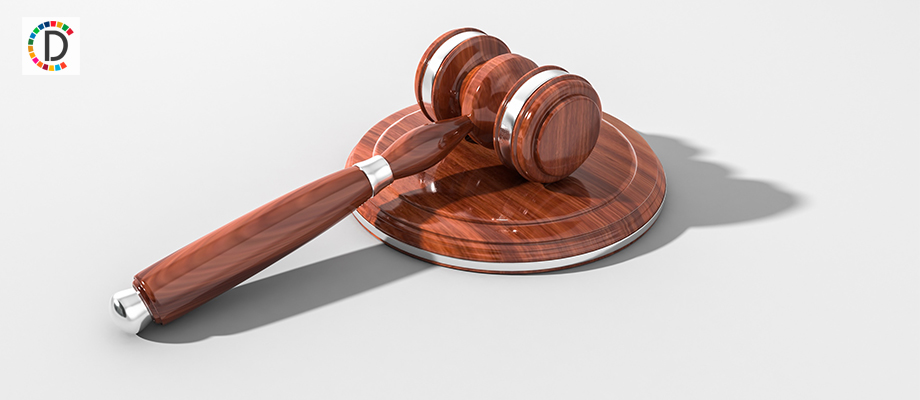Pak SC: Wife entitled to benefits in case of dispute if Nikahnama terms are ambiguous
Pakistans Supreme Court has ruled that in case of any ambiguity in the terms and conditions agreed at the time of the wedding and written in the Nikahnama, the benefits would be given to the woman if a dispute arose at any stage.A two-member bench comprising Justice Aminuddin Khan and Justice Athar Minullah on Tuesday issued a detailed 10-page judgment on an appeal relating to a couples divorce.

- Country:
- Pakistan
Pakistan's Supreme Court has ruled that in case of any ambiguity in the terms and conditions agreed at the time of the wedding and written in the Nikahnama, the benefits would be given to the woman if a dispute arose at any stage.
A two-member bench comprising Justice Aminuddin Khan and Justice Athar Minullah on Tuesday issued a detailed 10-page judgment on an appeal relating to a couple's divorce. The judgment was authored by Justice Athar Minullah, The Express Tribune newspaper reported on Wednesday.
According to the facts of the case, after the divorce, a woman approached the court for the return of dowry and other items under the conditions stipulated in the Nikahnama, an Islamic marriage contract, which is signed by both partners at the time of their marriage. When the matter reached the high court, the woman was given a plot of land mentioned in column number 17 of the Nikahnama.
Against the high court ruling, the appellant moved the Supreme Court, taking the stand that the purpose of the piece of land was that a house would be constructed there and as long as the marriage lasted the woman could live there.
However, there was no such explanation written in the Nikahnama.
The legal question before the Supreme Court in the case was: if there was any ambiguity in the terms and conditions of the Nikahnama, how could it be resolved? The court said it was a settled law that any ambiguity in a contract was determined by the intention of the parties.
However, in this case, the judgment noted, before interpreting the terms and conditions of the Nikahnama, it should also be considered whether the bride had full freedom to give her consent to the terms and conditions of the marriage.
The judgment noted that in a male-dominated society, the terms and conditions were generally decided by the men on behalf of the bride. So, it added, If someone else filled the columns of the Nikahnama without meaningful consultation of the bride, it could not be used against the interest of the bride.
If there was ambiguity or doubt in the terms and conditions of the Nikahnama or in any entry or column, then the wife would get the benefit, according to the judgment.
The Supreme Court also upheld the decision of the high court about giving a piece of land to the woman and dismissed the appeal, according to the paper.
(This story has not been edited by Devdiscourse staff and is auto-generated from a syndicated feed.)
ALSO READ
Polling began on 21 national and provincial seats in Pakistan's by-elections
One Frontier Corps soldier, two government officials killed in separate terror incidents in Pakistan's KPK
2024 elections in Pakistan more rigged than 2018 elections, says JUI-F chief
Pakistan byelections: Polling underway for 21 vacant seats under strict security
Pakistan deports over 800 Afghan refugees: Report










